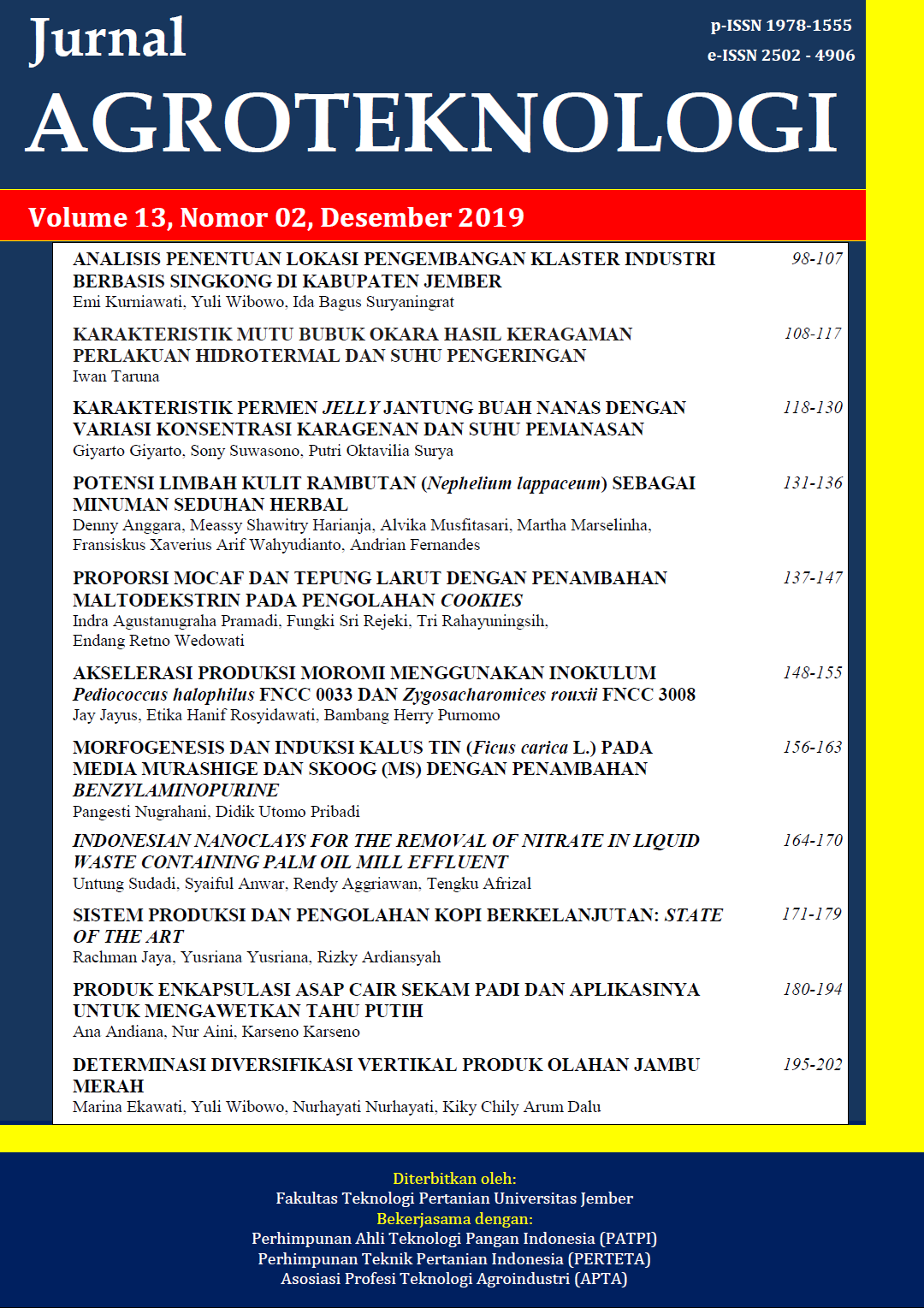INDONESIAN NANOCLAYS FOR THE REMOVAL OF NITRATE IN LIQUID WASTE CONTAINING PALM OIL MILL EFFLUENT
DOI:
https://doi.org/10.19184/j-agt.v13i02.15327Abstract
Land application of liquid waste containing palm oil mill effluent (LW-POME) as soil ameliorant can cause water contamination due to its high content of nitrate if improperly treated. Indonesia is rich with volcanic tuff materials that contain variable charged soil clay minerals. This study was aimed at to extract nanoclays (fraction sized <200 nm) from volcanic tuffs of Mt. Salak, West Java, Indonesia, and evaluate their potential use as adsorbent of nitrate in LW-POME. By applying dispersion, ultrasonication, centrifugation, and dialysis separation techniques, it could be extracted positively charged nanoclays nc3 and nc4 from the respectively tuff materials tv3 and tv4. Their potential use as natural adsorbent of nitrate as anionic contaminant was evaluated using Langmuir isothermal adsorption model. After 48 h equilibration, it could be extracted 4.33 mg nc3/g tv3 and 7.73 mg nc4/g tv4 with nitrate adsorption maxima of 48.3 and 40 mg/g for nc3 and nc4, respectively. The removal of nitrate in the LW-POME from 62 to 20 mg/L as to comply with the Indonesian liquid waste quality standard required 29.81 mg nc3/L or 39.34 mg nc4/L. The extracted nanoclays were considered prospective to be utilized as natural adsorbent for nitrate removal in LW-POME.
Keywords: anionic contaminant, natural adsorbent, nitrate adsorption, volcanic tuff
Downloads
Downloads
Published
Issue
Section
License
Jurnal Agroteknologi has CC-BY-SA or an equivalent license as the optimal license for the publication, distribution, use, and reuse of scholarly work. Authors who publish with this journal retain copyright and grant the journal the right of first publication with the work simultaneously licensed under a Creative Commons Attribution-ShareAlike 4.0 International License that allows others to share the work with an acknowledgment of the work's authorship and initial publication in this journal.
 JURNAL AGROTEKNOLOGI
JURNAL AGROTEKNOLOGI 








.png)
